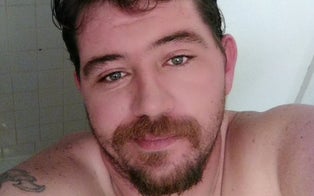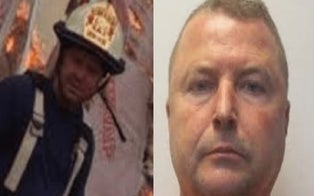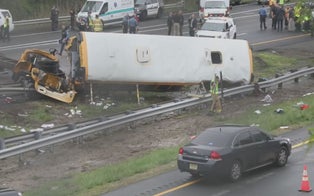Michael Jordan wasn’t the only player to get the news of his father’s killing as player Steve Kerr opened up for the first time on camera about his father’s assassination in the mid-1980s.
In the conclusion of ESPN’s acclaimed docuseries “The Last Dance,” fans learned Chicago Bulls star Michael Jordan wasn't the only player to lose his father to violence. In the ninth episode of the series, Steve Kerr opened up for the first time on camera about his father’s assassination in the mid-1980s.
While Jordan and Kerr did not have much in common and each got under one another's skin, including a time when Jordan admitted to punching Kerr in the face, they shared a bond in grief, as Jordan's father was murdered in 1993.
"We never discussed that," Kerr said in "The Last Dance." "I think it was probably too painful for each of us."
The Kerr family was one of brains not brawn as the athlete came from a family of academics. His mother, Ann, was a professor and his father, Malcolm, was working as a professor focused on Middle Eastern and Arab studies when Steve was born in Beirut, Lebanon.
Steve grew up there until the family moved back to the United States, where he attended high school in California before going on to the University of Arizona.
Steve explains in “The Last Dance” that his family seldom watched much TV together and he and his three siblings were not allowed screen time, unless a big game was being played. Steve, who loved basketball at a young age, was encouraged by his father to play.
Steve struggled to find playing time in high school and was just barely recruited by the University of Arizona in the fall of 1983. In fact, that Steve’s career as a player and manager would reach the heights it did early on would have dumbfounded many, including himself.
Then, everything changed.
Just before Steve entered the University of Arizona, his father became the head of American University of Beirut in 1982.
Lebanon was a dangerous place for Americans to be at the time. Malcolm Kerr’s predecessor had been killed by extremists during the Lebanese Civil War. The year after Malcolm assumed his role, a bombing at a U.S. Marine and French military barracks killed 241 U.S. Marines and 58 French paratroopers.
Then in 1984, when Steve was a freshman, he received the news that his father had been assassinated by members of the Shia Lebanese militia Islamic Jihad on the morning of Jan. 18, 1984. His father, then 52, had been shot twice in the head in the hallway right outside his office.
“So I received a phone call in the middle of the night from a family friend,” Steve said. “My phone rang in my dorm at 3 o’clock in the morning, so I knew something was up. He just said, ‘Steve, I have terrible news.'"
“Dr. Kerr’s untimely and tragic death at the hands of these despicable assassins must strengthen our resolve not to give in to the acts of terrorists,” President Ronald Reagan said in a statement at the time. “Terrorism must not be allowed to take control of the lives, actions, or future of ourselves and our friends.”
The patriarch’s assassination was something that motivated his son to perform better. And basketball was a welcome distraction. His mother agreed, saying in the docuseries that everyone grieves in different ways and for her son, it was on the court.
"Basketball was the one thing I could do to take my mind off what happened," Steve said. "So I went to practice the next day. I didn't know what else to do."
Steve, who now coaches Golden State Warriors, would get drafted into the NBA in 1988 by the Phoenix Suns, was later traded to the Cleveland Cavaliers in 1989 and then the Orlando Magic in 1992 before landing with the Bulls in 1993.
He would go on to win three NBA championships with the Bulls and two with the San Antonio Spurs. As a coach with the Golden State Warriors, he has won three championships.
His number, 25, was later retired by the University of Arizona.
RELATED STORIES






